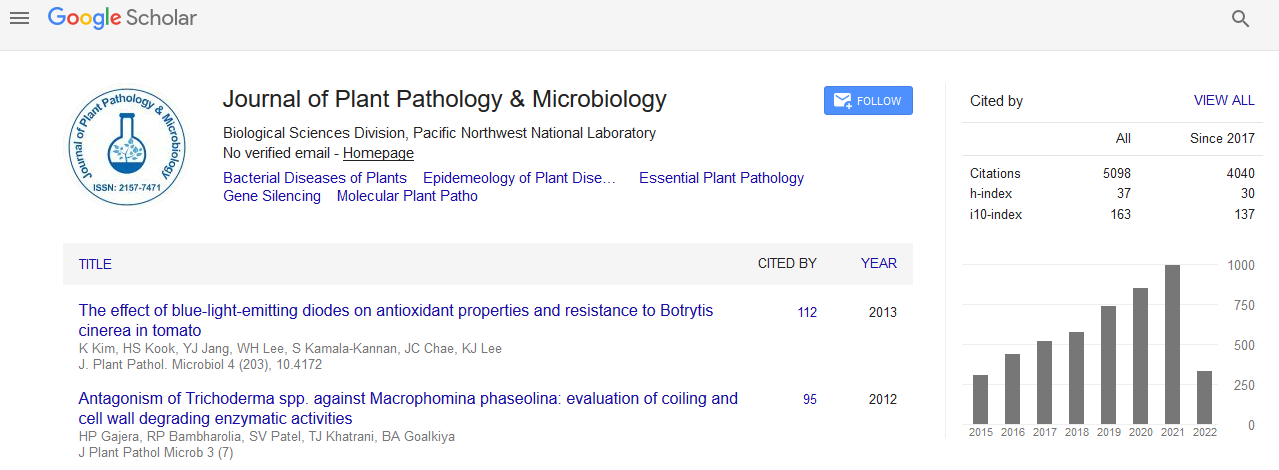PMC/PubMed Indexed Articles
Indexed In
- Open J Gate
- Genamics JournalSeek
- Academic Keys
- JournalTOCs
- CiteFactor
- Ulrich's Periodicals Directory
- Access to Global Online Research in Agriculture (AGORA)
- Electronic Journals Library
- Centre for Agriculture and Biosciences International (CABI)
- RefSeek
- Directory of Research Journal Indexing (DRJI)
- Hamdard University
- EBSCO A-Z
- OCLC- WorldCat
- Scholarsteer
- SWB online catalog
- Virtual Library of Biology (vifabio)
- Publons
- Geneva Foundation for Medical Education and Research
- Euro Pub
- Google Scholar
Useful Links
Share This Page
Journal Flyer

Open Access Journals
- Agri and Aquaculture
- Biochemistry
- Bioinformatics & Systems Biology
- Business & Management
- Chemistry
- Clinical Sciences
- Engineering
- Food & Nutrition
- General Science
- Genetics & Molecular Biology
- Immunology & Microbiology
- Medical Sciences
- Neuroscience & Psychology
- Nursing & Health Care
- Pharmaceutical Sciences
Abstract
Characterization and Identification of Tef (Eragrostis tef) Seed Endophytic Bacterial Species and Evaluate their Effect on Plant Growth Promotion
Zerihun Tsegaye, Fasil Assefa, Genene Tefera, Tesfaye Alemu and Birhanu Gizaw
In the present day there is no report on characterization and identification of bacterial endophytes isolated from tef (Eragrostis tef) seeds. This study was conducted to screen, identify, and characterize bacterial endophytes isolated from tef seeds germplasm repository and determine if the bacterial provided plant growth promotion. Nine endophytic bacterial species were identified from 83 tef seed accessions using a Biolog microbial identification system, which utilize 95 different carbon sources. Eight of the identified bacterial species could produce amylase, seven of the species could solubilize phosphate and six of the bacteria could degrade cellulose. All the bacteria were shown to enhance growth of wheat (Triticum aestivum) under laboratory condition. Pseudomonas stutzeri, Rhizobium radiobacter, Bacillus butanolivorans, Pseudomonas putida biotype B, Enterobacter cowanii, Pantoea dispersa, Enterobacter cloacae ss dissolvens, Serratia ficaria and Pantoea agglomerans significantly increased mean root dry mass of inoculated Triticum aestivum up to 9.8%, 9.3%, 8.1%, 7.9%, 7.7%, 7.5%, 7%, 6.9% and 5.5% respectively and increase the mean shoot dry mass of Triticum aestivum up to 29%, 25%, 23%, 26%, 23%, 20%, 22% and 19% respectively. In addition, several seed endophytic bacterial species exhibited tolerance to salinity up to 6% and only Bacillus butanolivorans tolerated salinity up to 15% and temperature up to 60°C, this suggested the potential for possible application under stressed environmental conditions and possible utility as bioinoculant for maintaining sustainable agricultural production and productivity without affecting human health.


